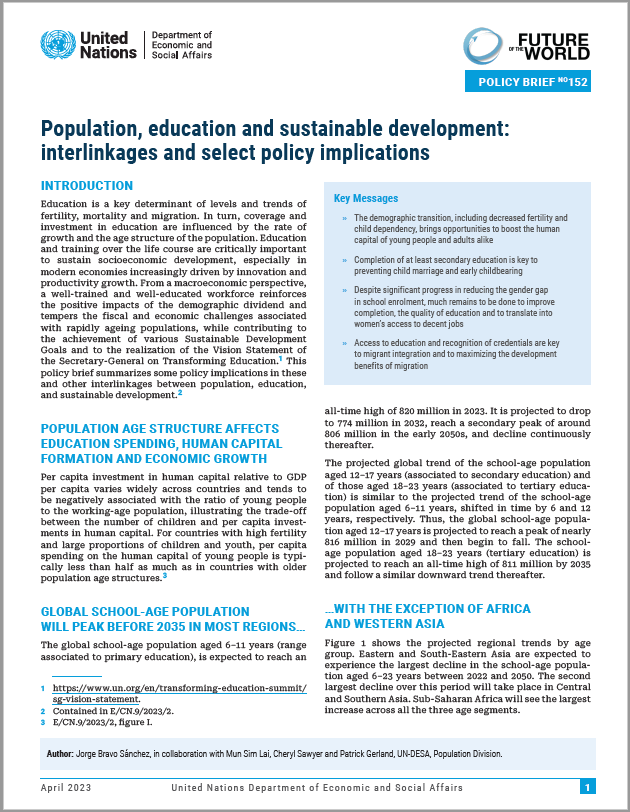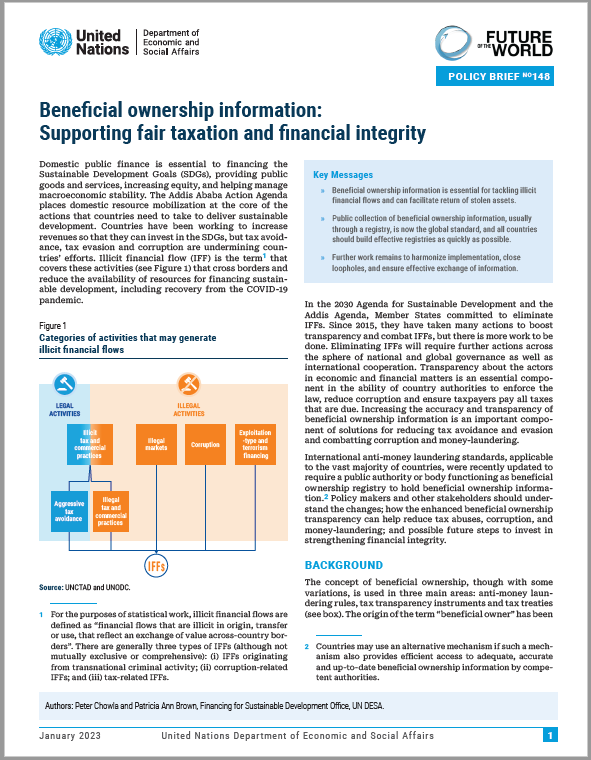Document_GEM: UN DESA Policy Briefs series
UN DESA Policy Briefs series
29 December 2023
Building resilient communities for sustainable development requires media organizations to play a central role in promoting public awareness and advocating for evidence-based approaches to risk-informed communication, disaster risk reduction, and climate action.
29 November 2023
Many MICs require international support to address current and long-term challenges. Eligibility criteria that rely only on income per capita limit available support – including access to concessional finance – without accounting for MICs’ multidimensional development needs.
8 September 2023
There is an urgent need for channeling long-term risk-tolerant finance towards achieving the Sustainable Development Goals. The paper argues that National Development Banks (NDBs) and Multilateral Development Banks (MDBs) can play a crucial role in mobilizing the needed capital.
24 April 2023
Taking account of future population trends in national development planning is essential for achieving the Sustainable Development Goals, in particular, those related to poverty, food security, health, education, gender equality, decent work, inequality, urbanization and the environment, and for ensuring that no one is left behind.
12 April 2023
The demographic transition, including decreased fertility and child dependency, brings opportunities to boost the human capital of young people and adults alike.
10 February 2023
Indigenous languages hold vital information about scientific and traditional knowledge on ecosystems, conservation and sustainability that benefits the whole of society. Every time an Indigenous language becomes extinct, the millennial knowledge of a culture is lost forever to the detriment of Indigenous Peoples and humanity. Inclusive policies can help reverse the trend and preserve the existence of Indigenous Peoples, their languages, cultures and knowledge.
26 January 2023
More must be done to tackle decent work challenges, promote transitions from informal to formal employment, combat long-term unemployment and strengthen mechanisms to set and adjust wages.
26 January 2023
Public institutions shall take policy measures to address challenges and build an enabling ecosystem for youth engagement and participation, with a focus on bridging the youth digital divide and supporting digital skills development of youth.
6 January 2023
Public collection of beneficial ownership information, usually through a registry, is now the global standard, and all countries should build effective registries as quickly as possible. Further work remains to harmonize implementation, close loopholes, and ensure effective exchange of information.



















Follow Us